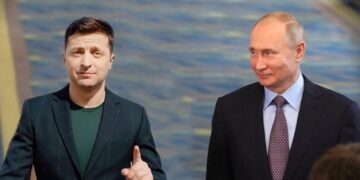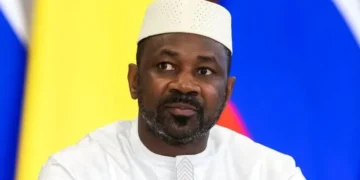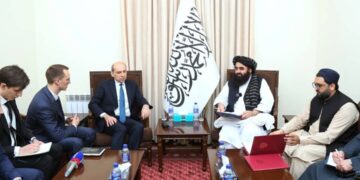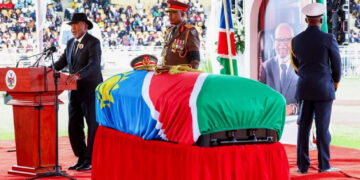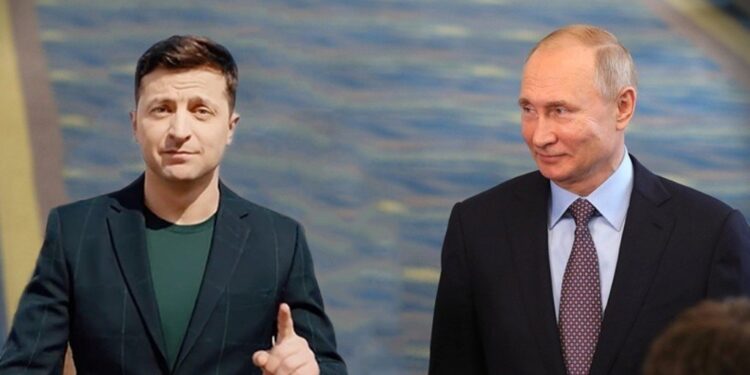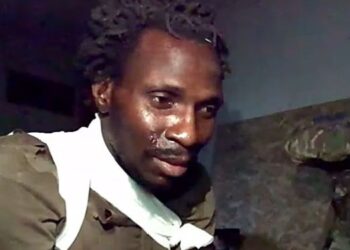By Emmanuel Nduka
According to the International Monetary Fund in 2018, among all the countries in Europe, Ukraine had the lowest GDP per capita. This is a far cry from Russia’s, whose economy is the fifth-largest in Europe, the world’s eleventh-largest economy by nominal GDP, and the sixth-largest by PPP. In terms of weaponry, Russia possesses approximately 6,400 nuclear warheads—the largest stockpile of nuclear weapons in the world. Russia owns more than half of the world’s 14,000 nuclear weapons.
As the world power makes a full invasion into Ukraine, here is how allies of both nations are shaping up in support.
Russia
Although China has not officially taken a side in the war, its body language suggests that it is backing Russia. While China enjoys good relations with Ukraine, it also cares about its business with Europe, and has found in Vladimir Putin, a trusted ally.
Also, the invasion comes on the heels of Putin’s recent visit to China where he and his Chinese counterpart walked arm-in-arm in a show of unity ahead of the opening of the Winter Olympics.
China had used the occasion to reiterate that Russia’s security concerns against Ukraine were legitimate, accusing the US of aggravating tensions.
The Asian giants commenting on the war, played smart by saying that it will not necessarily provide Moscow with military support, but will increase imports of wheat from Russia, a move that critics called an economic lifeline for President Putin.
India on its part, waited for more than 24 hours before its Prime Minister, Narendra Modi made a call for “an immediate cessation of violence” shortly after Putin announced the invasion of Ukraine. In a phone call with Putin, Modi called for “concerted efforts from all sides”, but failed to take any action against India’s ally.
Interestingly, both countries enjoy tight economic ties. This was further strengthened in December last year by a landmark meeting where the two leaders signed a couple of bilateral defence agreements, including India’s procurement of more than 600,000 assault rifles from Russia.
Belarus has also on numerous occasions backed Russia, by either trying to justify or dismiss the country’s actions.
Also likely to stand behind Russia, is the Collective Security Treaty Organisation (CSTO) which acts a bit like NATO. It is a group of former soviet states and is effectively a security pact.
The six countries that make up the CSTO are Russia, Armenia, Belarus, Kazakhstan, Kyrgyzstan and Tajikistan. These six will likely come to each other’s defence if attacked.
Ukraine
For Ukraine, some of the 30 NATO allies have announced the types of weapons they would supply, its Secretary-General, Jens Stoltenberg said, without giving specific details.
“Allies are very committed to continue to provide support. We are now deploying the NATO response force for the first time in the context of collective defence,” Stoltenberg said on Friday.
Stoltenberg said the alliance was deploying thousands of combat-ready troops to Ukraine’s neighbours, as well as weapons to Ukraine, including air defences after Russia’s attack. He said NATO was deploying elements of its rapid response force made up of land, air, maritime and special operations forces on allied territory.
The UK and US Governments have also come out strong for Ukraine. On Thursday, the Boris Johnson-led British Government announced an asset freeze on all major Russian banks, blocked Russian companies from raising capital in its markets, and imposed sanctions on some 100 members of the Russian elite, including the owner of a top flight Premier League club, Roman Abramovich (Chelsea FC). Another Premier League giant, Manchester United, also severed ties with its Russia’s national carrier, Aeroflot, which had been its official carrier for years.
On his part, US President Joe Biden sanctioned five major Russian banks holding up to $1trillion in assets in the US and moved to deprive Russia of the ability to import Western technology. Western bigwigs have also warned that if Putin’s offensive continues, they would consider additional measures, including targeting his personal wealth.
France has also said it will send defensive military equipment to Ukraine to support the country against Russia’s invasion, a French army spokesman said on Saturday, although the issue of sending offensive arms was still under consideration, he added.
Emmanuel Macron in a written speech to the country’s two legislative bodies on Friday, said France will provide Ukraine with an “additional budgetary assistance of 300 million euros” and “will provide the defensive material they need”. The speech however did not give full details of what the equipment would be.
